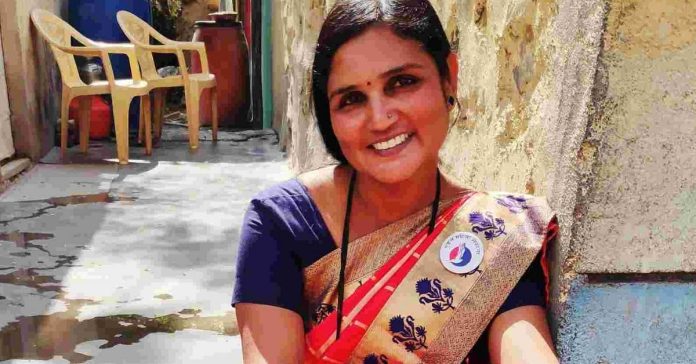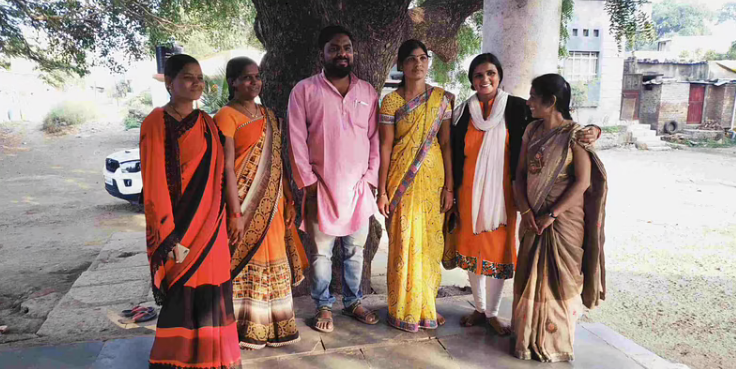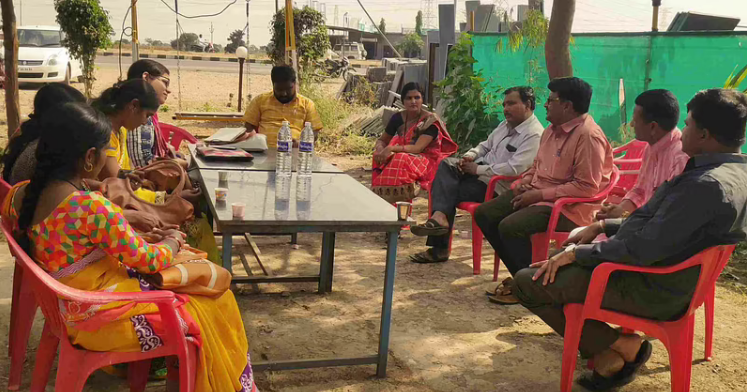
Heroic Story Of Laxmi Waghmare, Once Abused, who now Assists 17,000 Women and Helps Prevent Child Marriages
Date:

Share post:
Laxmi Waghmare survived domestic violence and raised her family on her little earnings as a local health worker. She is now a leader in a Maharashtra-based organisation dedicated to strengthening the rights of rural single women.
A group of women controlling the winds of change against sexism and domestic abuse is right in the heart of Maharashtra’s Marathwada area, in the Tuljapur Taluka. Laxmi Waghmare is one of them, guiding 17,000 women to a life with dignity and freedom by fighting for equality, training them about money management, and standing out against child marriage.
Laxmi was raised in a Dalit family of leather workers and married her maternal uncle, who was 13 years her elder when she was eight years old. “I was born into a family with several female children. So, when I was eight years old, my mother decided it would be a good idea to marry me off to my maternal uncle, who she thought would look after me,” Laxmi says, adding that she had no idea what she was getting herself into.
“When I was in ninth grade and started getting my period, my education was halted, and I was forced to live with my husband’s family.” But because I wanted to build a name for myself, I went on strike. If my in-laws didn’t send me back to school, I decided to give up food and water and vowed to commit suicide. “I was able to return to complete my 10th standard after a year apart and ended up finishing my HSC,” adds the 38-year-old.

From an early age, the mother of three was instilled with the ability to speak up against injustice. Even though life’s challenges were enough to destroy her, she recounts how they never broke her spirit.
Life post marriage
Her education came to an abrupt halt once she became pregnant with a girl, but years later, a chance arrived for her to return to work. “In the year 2000, when Bharat Vaidya (Halo Medical Foundation – HMF) was launching in the village, the Gram Panchayat requested a volunteer to conduct surveys of the village’s sick people and report back to the medical community. “I got a chance to serve as a rural health worker to undertake basic nursing and baby healthcare and serving pregnant females because the Panchayat knew I had educated to the 12th grade,” she says.
She worked as a mini doctor’ with a monthly stipend of Rs 300 and was armed with the work of conducting pregnancy tests and HIV tests, spreading her scope of work to neighboring villages as well. “At first, many refused to collaborate, mocking me and saying things like, ‘You’re not educated; how would you aid doctors?’ “However, after seeing my work, all their doubts vanished,” Laxmi recalls.
Laxmi immediately realized the intersectionalities between women’s health, nutrition security, access to financial services, and agency after completing surveys. She created a self-help group of 10-12 women the same year. “Because most of these women are either unmarried, widowed, divorced, or have no assets to their name, they would be ineligible for bank loans because they have no collateral.” Every month, we planned to gather a tiny payment from each woman, as little as Rs 100, and set it aside. This was done to develop a revolving loan system among women, which they could use for personal reasons such as their children’s education, says Laxmi.
“I’ve gone through a lot in my life,” Laxmi says of dealing with single women. People often wonder if my children are my siblings because I gave birth to them at such a young age. When I first started working with the women in the villages, I realized I had the opportunity to reflect on my own life. “It’s possible that just a few women may connect to the difficulties I’ve had in my marriage.”
Fighting the odds and creating an example
“Because I would go out for work and return back home late, the neighbors would often point fingers at my character and spread rumors,” Laxmi recounts. I was once forced to stand outside in the rain one evening because I was late.”
Laxmi says that she realizes that her husband holds a different point of view but that there is no excuse for his aggressive behavior. “I’m a 12th-grade pass.” My hubby is illiterate. We used to have a lot of disagreements. He grazes animals and returns home intoxicated. He had already hit and abused me on numerous occasions. I had had enough and confronted him. Things at home have improved since then. “Though it is because of my personal experience that I was able to stop four child weddings in 2006-07,” she says, “I still live with my husband for the sake of my mother, who often encourages me to forget the past.” I pleaded with their parents to recognize that these girls desired to study and that this was not the time for them to marry.”
Kaushalya Dadasaheb Kalsule, a single mom who was also chosen for a fellowship training course by CORO India in 2016, praises her mentor, Laxmi. The widow describes how attending self-help groups (SHG) gave her the courage to leave her house. My education was halted after I married as a child and became pregnant shortly after. However, watching Laxmi handle the meetings motivated me to want to be like her. I started in Class 10 and finished in Class 12. “English was one of the subjects in my board exams, but that didn’t stop me,” Kaushalya says.

“It’s all part of the job.”
Every morning, Laxmi gets up early to finish her housework. “My children, Pooja, who is completing her TYBSc. Abhishek, who is pursuing his SYBSc, and Shubham, who is pursuing his HSC, assist me with my chores.” Before I depart for my daily village surveys at 9 a.m., my lads sweep and swab the house. At least 3,000 villages must be checked on. I also keep track of who exhibits coronavirus symptoms. I have lunch and prepare documents for official purposes when I return by 12 p.m. Over a cup of tea in the evenings, I check on with my sahelis on how their lives are going and what challenges they’re facing,” Laxmi adds.
“I still don’t have any possession to my name,” Laxmi adds when questioned if she has any message for women everywhere. But, because of my income from CORO and my work as a village health worker, I am able to live a better life and provide for my children.” She also encourages women to speak up for themselves, adding, “Everyone should be capable of standing on their own feet.”
